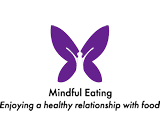 How To Stop Dieting, Eat Normally And Lose Weight
How To Stop Dieting, Eat Normally And Lose Weight
I hear many people say they’re sick of dieting, but they’re still overweight and just want to start eating ‘normally’. Whilst weight loss clubs give people plenty of opportunity to focus on and achieve their weight loss goals, it’s not easy to find something that helps an individual to understand why they might overeat in the first place or why they find it hard to eat in a balanced way, which might keep them stuck in a cycle of yo-yo dieting, or swinging between binge eating and restrictive eating.
To understand a person’s relationship with food, it’s important to recognise that food and eating can symbolise different things to different people. For example, eating can be a way of having a break, it can have a calming effect, it can act as a distraction or provide a temporary release from difficult situations or from one’s own state of mind, it can be a way of taking or relinquishing control, and it can even be a means of rebelling or ‘rule breaking’. Food might be used as a way to try and self-soothe or even self-punish. Addressing emotional eating (turning to food as a coping mechanism) is really important. Read more about my webinar: ‘How To Eat Normally And Lose Weight Without Dieting’.
Understanding your relationship with food could help you to tackle overeating or disordered eating for good. A good place to start is to work on adopting a more flexible mindset in relation to eating in order to achieve a more ‘middle-way’ approach, to avoid swinging between restrictive eating and overeating (such as being ‘on’ or ‘off’ a diet). It’s also important to stop labelling foods as ‘good’ or ‘bad’, because when we eat ‘bad’ foods we can feel a sense of failure. Food isn’t bad, it’s the way we behave around it that’s the issue.
A weight loss goal by itself is ineffective, which is why many people re-gain weight after they’ve lost it. If they yo-yo diet for many years, they can end up not trusting themselves around food, and having very little self-belief. Underlying a person’s mindset must be considered alongside a weight loss goal, or even as a first step. You might need to work on any ‘crooked’ or extreme thinking and behaviours you’ve developed from years of dieting. Initially, not going on a diet might feel scary, if it’s the only method you’ve used to control your food intake; but if diets haven’t given you the long-term solution you’re looking for, learning to approach food with a more flexible attitude can make a real difference, and make you feel more relaxed and confident, rather than anxious or out of control around food.
Restriction leads to bingeing
 We will always be hard-wired to enjoy fatty, sugary foods, so we need a realistic approach. It’s really ok to eat a couple of biscuits from time to time. Being able to eat just two biscuits and feel satisfied with that amount is what clients tell me they’d love to strive for – it’s a midway point between eating a whole packet of biscuits and not allowing yourself any biscuits at all. Because restriction can lead to bingeing, it’s really important to give yourself permission to enjoy foods you love in a moderate way. Read my other blog post: ‘Stop Yo-Yo Dieting With Middle-Way Eating’. By ditching strict, rigid rules, by slowing down our eating, focusing on the food in front of us and savouring it, food becomes more satisfying and we learn to become more satisfied with less food. With mindless overeating there’s often little enjoyment.
We will always be hard-wired to enjoy fatty, sugary foods, so we need a realistic approach. It’s really ok to eat a couple of biscuits from time to time. Being able to eat just two biscuits and feel satisfied with that amount is what clients tell me they’d love to strive for – it’s a midway point between eating a whole packet of biscuits and not allowing yourself any biscuits at all. Because restriction can lead to bingeing, it’s really important to give yourself permission to enjoy foods you love in a moderate way. Read my other blog post: ‘Stop Yo-Yo Dieting With Middle-Way Eating’. By ditching strict, rigid rules, by slowing down our eating, focusing on the food in front of us and savouring it, food becomes more satisfying and we learn to become more satisfied with less food. With mindless overeating there’s often little enjoyment.
Slow down and put some thought into what you eat
Mindful eating is about enjoying food whilst nourishing the body. But we’re never aiming for perfect eating – it doesn’t exist! Flexibility is key, as well as engaging the brain and self-awareness. Eating on autopilot whilst rushing around is so easy to do. By slowing down, putting some thought into what to eat and how much to eat and being aware of our triggers to eat/overeat (such as emotional eating or fast eating), we can become less reliant on diets, eat in a more balanced way and be more prepared for any eating occasion. We can all find strategies to help us eat in a way that’s in our own best interest- you just need to put some commitment into creating your own personalised way of eating. Get curious about your eating, without being judgemental, to develop self-awareness. Increased self-awareness enables you to identify strategies.
If you want to address overeating, stop dieting and eat in a more balanced way, which of the following tips could help you? Don’t try them all at once- baby steps!
 Identify and address your eating triggers. For example, do you tend to reach for food when bored, alone, stressed, in need of rewarding yourself, or procrastinating?
Identify and address your eating triggers. For example, do you tend to reach for food when bored, alone, stressed, in need of rewarding yourself, or procrastinating?- If you want to lose weight, don’t follow restrictive diet rules– restrictive diets can lead to food cravings, a preoccupation with food, bingeing and cause a poor relationship with food overall. They’re usually unsustainable and often provide only short-term results. Create your own personalised way of eating instead- have personal, intentional guidelines for clarity and focus (eg eat specific portion sizes, have 2 courses not 3 when eating out, eat only when hungry and stop when full, have desserts at weekends only or have some alcohol-free days).
- Don’t just have a weight loss goal, address your relationship with food too. Address emotional eating, if you’re regularly overeating.
- Avoid all-or-nothing thinking and behaviours around food (such as weekday restraint and weekend overindulgence, no biscuits vs. the whole packet). Aim for ‘middle-way’ eating (eg savouring and feeling satisfied with just two biscuits). A black and white mindset can be very self-limiting.
- There’s no right or wrong way to eat, no ‘good’ or ‘bad’ foods– it’s how much of a food you eat and how often you eat it that counts. Eating ‘bad’ foods can fuel guilt and shame. Give yourself permission to eat foods you enjoy in a mindful way- if we don’t allow ourselves foods we love we will only crave them.
- Adopt a more flexible attitude around eating vs. a rigid ‘shoulds and musts’ mindset or too many rules. Stop policing yourself around food- rigid rules are unsustainable, and rules can lead to rebellion! Avoid ‘perfect’ eating- it doesn’t exist. Don’t think you’ve blown it if a meal doesn’t go according to plan- use the next mealtime to make a better food decision/eat less. Make adjustments-think of your eating as a bank balance: if you overspend (overeat), spend (eat) a bit less over the next few days.
- Enjoy your food: with mindless eating there’s often little enjoyment. Avoid eating whilst overly distracted (eg TV eating). When we notice what we’re
 eating, food is more satisfying, enabling us to feel satisfied with a moderate amount. Be present with food, savour the taste- learn to enjoy less food more.
eating, food is more satisfying, enabling us to feel satisfied with a moderate amount. Be present with food, savour the taste- learn to enjoy less food more. - Tune in to your body’s needs: notice when you’re hungry and full, what kind of food your body might need. Are you thirsty? Respond to those internal cues; don’t be overly influenced by external cues (such as the sight/proximity of food, others eating).
- Balance your blood sugar levels to stabilise appetite (keep you feeling fuller for longer) and minimize insulin production (insulin is a fat storage hormone). Add some protein and/or dietary fats to meals and snacks (eg nuts, dark chocolate, avocado, oily fish, healthy oils, eggs, cheese, meat, poultry, pulses (eg chickpeas- houmous) to avoid large blood sugar peaks and dips.
- Self-care: make decisions that are in your own best interest, most of the time (including food choices, getting adequate sleep, stress management, communicating and getting your needs met). Give yourself choice and permission. Watch out for that inner critic! Self-criticism can make us feel a ‘failure’, which can affect motivation. Notice when your ‘diet head’ is kicking off, which can encourage all-or-nothing thinking and behaviours.
- Be aware of unhelpful ‘autopilot’ behaviours- engage the decision-making part of the brain (think before you eat). Am I hungry? Shall I eat this snack now, or is lunch approaching? Will this food taste as good as it looks? Am I still enjoying this or is it time to stop? Will this food keep me going or will I go looking for more food? Slow down- fast eating is linked to overeating.
- Consider the big picture: our eating habits are influenced by a range of factors: lifestyle (eg stress levels, sleep), personality, mindset (eg attitudes, beliefs, nutritional knowledge, self-awareness), self-concept, physical/mental health status, unaddressed needs, childhood, behavioural (eg portions, speed of eating, plate clearer). Self-awareness and knowledge-building, self-care and self-compassion are therefore key for positive change (and so is patience!).
- Be more discerning: eat what you really want to eat and pass on the rest.
 Stock up: have a good variety of foods at home to inspire you to eat in a healthy and balanced way. Make a shopping list and stick to it (don’t fall for special offers on unhealthy, processed, high calorie foods and the way food is presented, ie food marketing).
Stock up: have a good variety of foods at home to inspire you to eat in a healthy and balanced way. Make a shopping list and stick to it (don’t fall for special offers on unhealthy, processed, high calorie foods and the way food is presented, ie food marketing).- Avoid getting overly hungry as this can lead to mindless overeating and poor food choices. Carry a healthy snack in your bag. If your eating is erratic, try to plan and structure your meals and snacks.
- Notice and address any non-hunger eating, eg boredom eating, stress eating, secret eating, anger/frustration eating, reward eating, procrastination eating, see-food-and-eat it eating, other emotional or comfort eating.
- Watch out for excuses you might regularly use to eat, eg “It’s only the one biscuit”, “I’ve eaten most of the packet so I might as well eat the rest”, “I can’t let the food on my plate go to waste”, “I don’t have time to cook healthy meals”.
- Try calorie-‘shaving’ (eg have regular coffees not lattes, leave some food on your plate, cut a small slice of cake, drink from smaller wine glasses).
- Consistency: keep practising new behaviours to embed new habits (make sure they’re achievable, realistic and enjoyable). Baby steps: try just 1-2 new things each week.
- Have a journal to make notes and build self-awareness, eg mood and food links; complete exercises, eg: “I’m eating this because…..”
Try experimenting with new ways of eating, and remember to be consistent- there’s no point in doing something really well for two weeks and then going back to old habits. If you make a commitment to adopting more balanced, mindful eating, you should be able to tackle overeating, stop dieting, eat normally and lose weight in the process. If you’d like someone to support you along the way, then I can work with you as you embark on positive change.
Find out more about my one-to-one sessions.
My Services
One-to-Ones: SPECIAL OFFER: buy four sessions up front and get the 4th session HALF PRICE (£30). Contact me to book an appointment or to arrange a FREE phone chat to discuss.
Webinars (Zoom) and in-person talks (based in Surrey) including ‘How To Eat Normally And Lose Weight Without Dieting’.
Support Group: more information about my support groups can be found HERE.
Visit Eventbrite to see the events schedule and to purchase tickets.
Follow me on Instagram.
If you feel you could benefit from my services and would like to have a FREE chat to discuss, give me a call (Emma Randall) on 07961 423120, or email me: info@mindfuleating.org.uk




 Stock up: have a good variety of foods at home to inspire you to eat in a healthy and balanced way. Make a shopping list and stick to it (don’t fall for special offers on unhealthy, processed, high calorie foods and the way food is presented, ie food marketing).
Stock up: have a good variety of foods at home to inspire you to eat in a healthy and balanced way. Make a shopping list and stick to it (don’t fall for special offers on unhealthy, processed, high calorie foods and the way food is presented, ie food marketing).